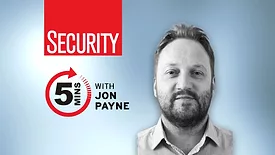Articles by Maria Henriquez
Cybersecurity Education & Training
Top benefits of cybersecurity training
December 8, 2022
Top Web Exclusives
Top 12 physical security, cybersecurity & risk management stories of 2022
December 6, 2022
Global News
6 steps to respond to enterprise cybersecurity challenges
Cybersecurity is becoming an enterprise-wide issue beyond the chief information security officer’s (CISO’s) office.
November 18, 2022
Sign-up to receive top management & result-driven techniques in the industry.
Join over 20,000+ industry leaders who receive our premium content.
SIGN UP TODAY!Copyright ©2026. All Rights Reserved BNP Media.
Design, CMS, Hosting & Web Development :: ePublishing









